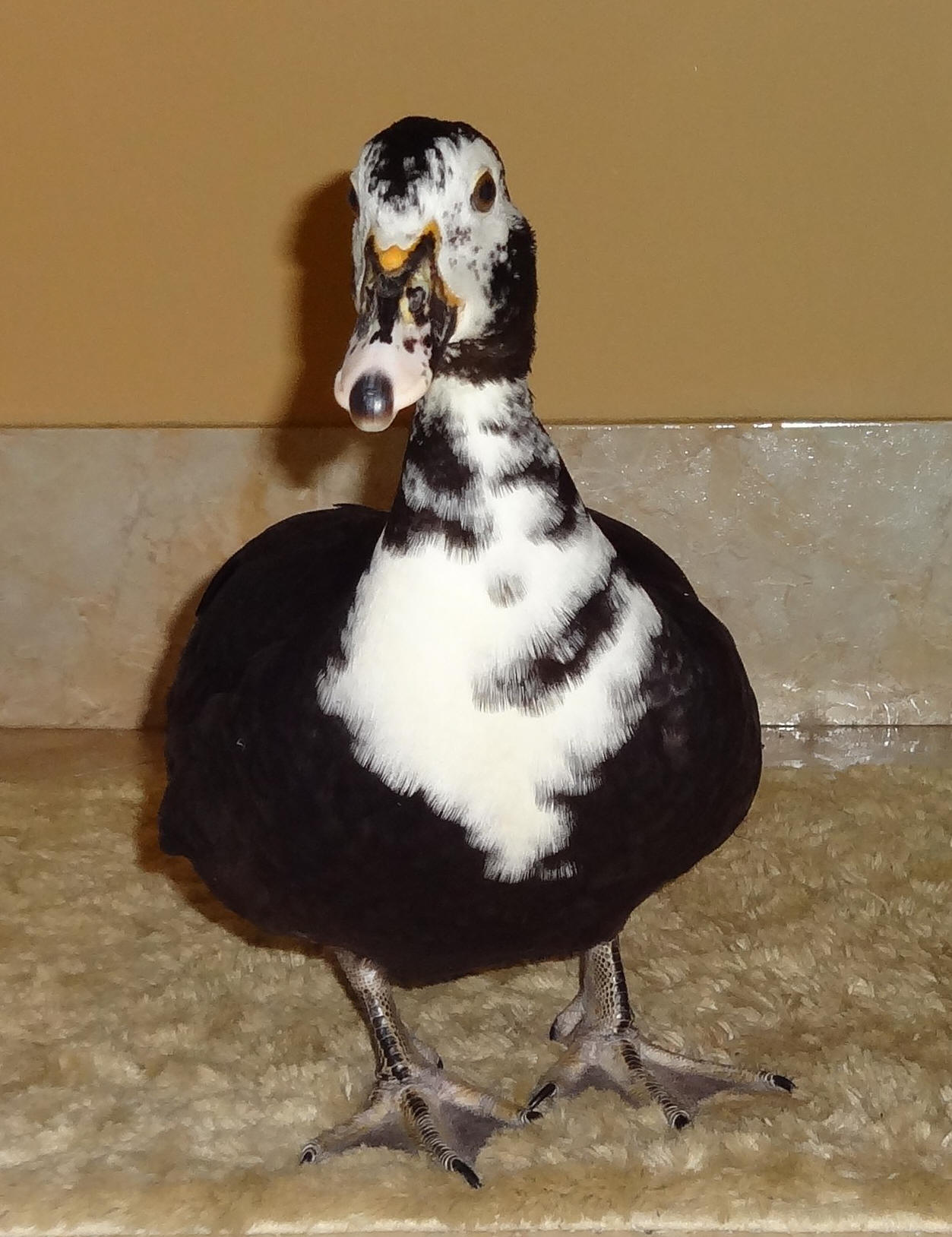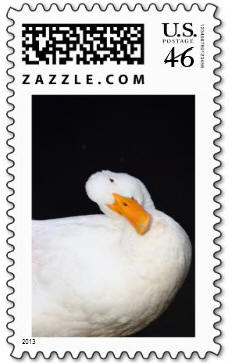Duck-Duck-Goose Blue Ribbon Photo Contest!
LAST CHANCE to send in your duck & goose photos! This year our prize ribbons are BIGGER and more BEAUTIFUL than ever! And it's all for a great cause!
Please view our contest rules by clicking Here!
Submissions accepted until Midnight (EST), June 15, 2013.
"Wow! Look at that shiny, new
Blue Ribbon,
Ranger!" --Rilo
Sponsor-A-Ribbon
All Ribbon Sponsorships are TAKEN as of 2:40 p.m. May 31st, 2013.
Thank you, Ribbon Sponsors!
2013 Sponsor-A-Ribbon
Rodent Control (continued...)
In last month's issue we mentioned that we had received numerous emails about rodent control. It is not uncommon at all to have a rat wander through and opt to settle in if the place looks good. A nice pen to keep them safe from predators (fox, raccoons and hawks... oh my!), some healthy food and clean drinking water... What a great place to raise a family!
While we addressed ways of clearing out invading rodents, we didn't review some tips on preventing them from wandering into your pens in the first place.
The best fencing we've found in this regard is 1/2" x 1/2", 16 gauge, vinyl PVC coated hardware cloth/wire mesh with a galvanized steel wire core (Academy fence Company). Completely surrounding your pens with this type of wire will keep rodents out, provided your perimeter also goes at least 18 inches underground. The benefit of this type of fencing is it will last you and your flock a lifetime; it won't rust or deteriorate.
An additional stop for rodents (and predators of all kind) are predator skirts. Click Here to learn more.
Mounting metal flashing or a light weight, flexible PVC galvanized wire (19 gauge) around the base of your barns and houses will prevent rodents from gnawing through and making their own private doorways.
Keeping your duck or goose's grain out of reach of rodents is another way to prevent trouble from moving in and taking advantage of your hospitality. Metal garbage cans work great if you store your feed outside in your barn or shed.
Eliminate lawn clutter, or piles of hay and debris where rodents like to make their lairs and keep vegetation trimmed and grass cut. Without good hiding places, they are less likely to invade.
Lay down a two-foot barrier of crushed rocks around your pens and barn to help discourage rodents from entering.
Facts about mice and rats:
Mice can squeeze through an opening the size of a dime.
Rats can squeeze through an opening the size of a nickel.
Both have poor vision, but an excellent sense of smell, taste and touch and tend to feel their way along fence lines and buildings.
Both are generally nocturnal.
Both can reproduce exponentially. A mouse reaches sexual maturity in 1 month, has a litter of up to six babies in 19 days and average about eight litters a year. A rat reaches sexual maturity in 3 months, has a litter of up to twelve babies in 23 days and can have up to seven litters a year.
*Thank you Roz for your input!
Crop (Gullet) Stasis
Crop Stasis: When the crop stops emptying and becomes distended with fermenting food and fluids. Stasis can be caused by issues in the crop or in other parts of the digestive system with symptoms appearing in the crop.
Possible Causes: Obstruction, growths (tumors, etc. ), lead/zinc toxicity, bacterial infection, viral infection (rare in waterfowl), yeast infection (common in geese), parasites (worms), metabolic disorders (liver & kidney disease, diabetes).
Symptoms: Distention of the crop, drooling, loss or changes in appetite, lethargy, weight loss.
The cause of the stasis will need to be remedied in order for the stasis to improve. Please refer to our October 2008 Newsletter for more information.
Neo
Ingestion of Toxins & Poisonous Substances
Sadly, it is not uncommon for us to receive emergency emails from families who are witnessing the sudden onset of seizures in their pet duck or goose. In nearly every case we have been able to help these families trace these symptoms back to the consumption of something in their yard. Do you know what items around your home might be toxic to your feathered friends?
Putting aside the chemicals we commonly understand to be dangerous if consumed by our pets (household chemicals, paints, solvents, gasoline, oil, pesticides, rodent poisons, snail/slug bait, etc.) and also setting aside metal-plated objects that can cause zinc/lead toxicity (nails, screws, coins, lead shot, bullet casings, etc.), let's review a few items that you might not be considering.
Pressure Treated Lumber: This lumber is treated with chromium, copper, and arsenic (CCA). Over time they can leach into the surrounding soil or water if immersed. All three are toxic, but it’s arsenic that most of us worry about. While there are disputes over how large doses have to be and how long they need to be consumed in order to cause disease, we advise to err on the side of caution.
Fertilizer (Lawn & Garden Products): Do you treat your lawn, trees or flowers? Fertilizers contain a myriad of unsafe chemicals for your feathered friends including zinc and iron. Avoid treating any areas in or anywhere around your pens. Rain wash and foot traffic can easily carry these unsafe chemicals into your duck or goose's yard.
Ice/Snow Melt & Salt: Do you treat your driveway with chemicals or salt to treat slippery surfaces? When the spring thaw comes, where do these substances go? Into the soil where your ducks are foraging or into the puddles they like to dabble in? Ingestion of these chemicals can be fatal. A puddle of water contaminated with salt from your driveway can result in toxic effects known as sodium ion poisoning (often indicated by seizures).
Fireworks: Do you light off fireworks in your yard in the summer? Do you carefully clean up any remainders immediately thereafter? Fireworks can contain a variety of heavy metals and chemicals, which can leach into puddles or the soil.
Balloons, Ribbons & Wrapping Paper: Parties are fun, but remember to pick up any leftover remnants in the yard before letting your ducks out to forage. Pieces of popped balloons are colorful and attract immediate attention. If ingested they can get cause suffocation or intestinal blockage. The same is true of curly ribbons and wrapping paper.
Blue-green Algae (Cynobacteria): Blooms of blue-green algae can contain hepatoxins and/or neurotoxins that can be fast-acting and fatal. Denying your ducks and geese from accessing their pond during these times can be life-saving.
Compost Piles: Your compost heap should always be fenced off with a generous barrier between it and your flock's foraging space. These piles of decomposing and decaying organic matter have the potential to contain fatal mycotoxins.
Mulch: While a nice decorative touch to your lawns, pine and cedar mulch (among other varieties) can be very dangerous for your ducks and geese. While on the surface they may look pretty, there are often dangerous molds brewing underneath. Ingestion of these molds can lead to aspergillosis lung infections, which can prove fatal if left unchecked. In addition, some mulch products are treated with chemicals and colorants that may be dangerous for your darlings.
Mushrooms (Fungus): As most of us already know, many varieties of mushrooms are poisonous. Watch for them in your yard and pens and pull them completely out of the ground and dispose of them properly when discovered. Mushrooms can grow very fast and sometimes appear overnight. By removing them quickly, you can prevent their spores from traveling into your pen areas, stopping their spread.
Plants, Flowers & Berries: Ducks and geese are infamous plant and berry eaters. Keep a close eye on what's growing in and around your pens and yard. A guide to toxic plants in your area is an invaluable tool. You can also visit the ASPCA's Website for a good starter list. When in doubt, pull it out! Removing toxic plants before they can seed and reproduce can help stop invasive problems down the road.
Cigarettes (Chewing Tobacco, Nicotine Patches/Gum): We once had a visitor sit down in one of our pens during a tour and light up a cigarette. We immediately ordered it put out and escorted them off of the premises. It was unfathomable to us that someone would do this in the midst of a sanctuary tour, but not unimaginable that people smoke in their own backyards.
If you or any of your visitors are smokers/nicotine chewers, be sure that tobacco/nicotine products are not dropped, discarded or spit into the ground where your ducks or geese might possibly ingest them.
Cigarettes contain approximately 3.5 mg of nicotine, while nicotine gum has 2-4 mgs, and an ingested nicotine patch can release 5-15 mgs of nicotine over the course of 16 hours. A duck or young goose weighing 5 pounds can be poisoned by as little as 2.5 mgs of nicotine with a fatal dose being around 20 mg.
Treatment:
If your duck or goose has ingested any of these or other toxic substances, vet intervention should be sought out immediately--especially if they are symptomatic. Seizures* and vomiting are commonly the first symptoms of poisoning.
In an emergency situation, before reaching your vet, you can give your duck or goose a dose of Karo® syrup immediately following each seizure (6 ml dosage for an adult duck or goose over 3 lbs). This will keep their energy up until you can get to help.
Vets will often treat poisoned waterfowl with activated charcoal, fluids & glucose, an anticonvulsant/sedative (Diazepam) and nutritional support while also running a comprehensive avian blood panel.
Ducks and geese can often survive environmentally caused seizures with little or no permanent damage if the source is removed and they are immediately treated by a vet.
*Seizures can also be brought on by injury, contagious disease, cancer, tumors, low blood sugar (diabetes), malnutrition, heatstroke and organ failure.




